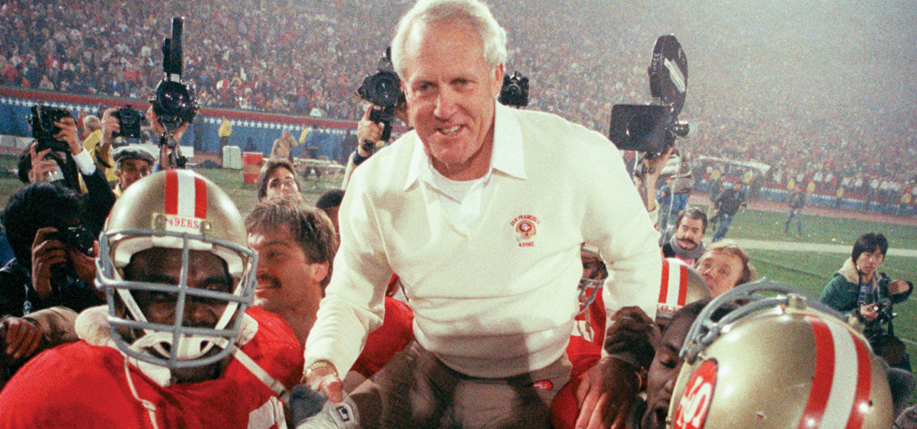
Hearing someone described as being able to “fly by the seat of his pants” always suggests to me a leader who hasn’t prepared properly and whose pants may soon fall down.
–Bill Walsh
Lately, we’ve explored various reasons people procrastinate when it comes to starting their immigration case(s). We’ve looked at
- the overconfidence effect,
- the planning fallacy,
- choice overload,
- the crowd mentality,
- myopia,
- the status quo bias,
- loss aversion,
- the present bias,
- the optimism bias, and
- inattentional blindness.
Now, we’ll explore one simple way people can beat immigration: pre-commitment.
You can see the power of pre-commitment in the work of two titans in their respective fields: American football coach Bill Walsh and investor John Templeton.
The idea behind pre-commitment is simple and easy to understand: make your decision well before you need to act, when you are in a detached, rational state of mind–then follow (or make someone else follow) that decision.
John Templeton, Legendary Investor
John Templeton was well known for saying, “[t]he time of maximum pessimism is the best time to buy, and the time of maximum optimism is the best time to sell.” However, when a stock’s price is falling and falling, it can be emotionally hard to buy. (And when a stock’s price is rising quickly it can be emotionally hard to sell: you wonder if the stock is a godsend, a one-way ticket to your dream life.)
Templeton would navigate this emotional challenge by making his buy decisions well before a sell off occurred. He would keep a wish list of stocks, representing companies he believed were well run but had over-priced stocks. He would then make buy orders with his brokers, directing them to purchase those wish list stocks if the market sold off enough to drag their prices down to levels at which he considered them a bargain.
Now, let’s look at Bill Walsh.
Bill Walsh, Legendary Coach
Before winning championships as the head coach of the San Fransisco 49ers, Bill Walsh was an assistant coach (offensive coordinator) of the Cincinnati Bengals. One Sunday afternoon–his last Sunday afternoon as a coach for the Bengals–he was leading the team’s offense in a playoff game against the Oakland Raiders. The game took place in the Oakland Coliseum, home of football’s rowdiest fans. And the winner would advance to the AFC Championship game against the Pittsburgh Steelers.
With a little time left in the game, the Bengals got the ball. Walsh needed to lead the offense to three points, which would force overtime.
What did Walsh do? Walsh froze. Raiders fans were howling and throwing half-eaten hot dogs, empty cups, game programs, clothes, and shoes up at the booth where he was sitting and calling plays. The pandemonium destroyed his thinking, and Walsh froze.
The Raiders won. Walsh’s poor play calls in the closing moments of the game cost the Bengals their ticket to the AFC Championship game.
From that point forward, Walsh swore he would always be ready for anything, so the chaos of a moment would not cloud his judgment.
But what exact tactic would Walsh use to navigate similar emotional challenges? He expanded the practice of scripting plays, that is writing–before the game–what plays he would call. He would pre-commit.
Applying Pre-Commitment to Immigration Procrastination
With the decision of starting your immigration case, one way to beat the psychological hang-up of procrastination is to pre-commit.
There are many ways to put the power of pre-commitment to work in this context. You could, for example, do the following:
(1) write down the circumstances under which you will start your immigration case,
(2) tell someone else what those circumstances are, and
(3) start your immigration case when those circumstances are met.
(Telling someone else what the triggering circumstances are will lead to a greater likelihood that you will act on your pre-commitment.)